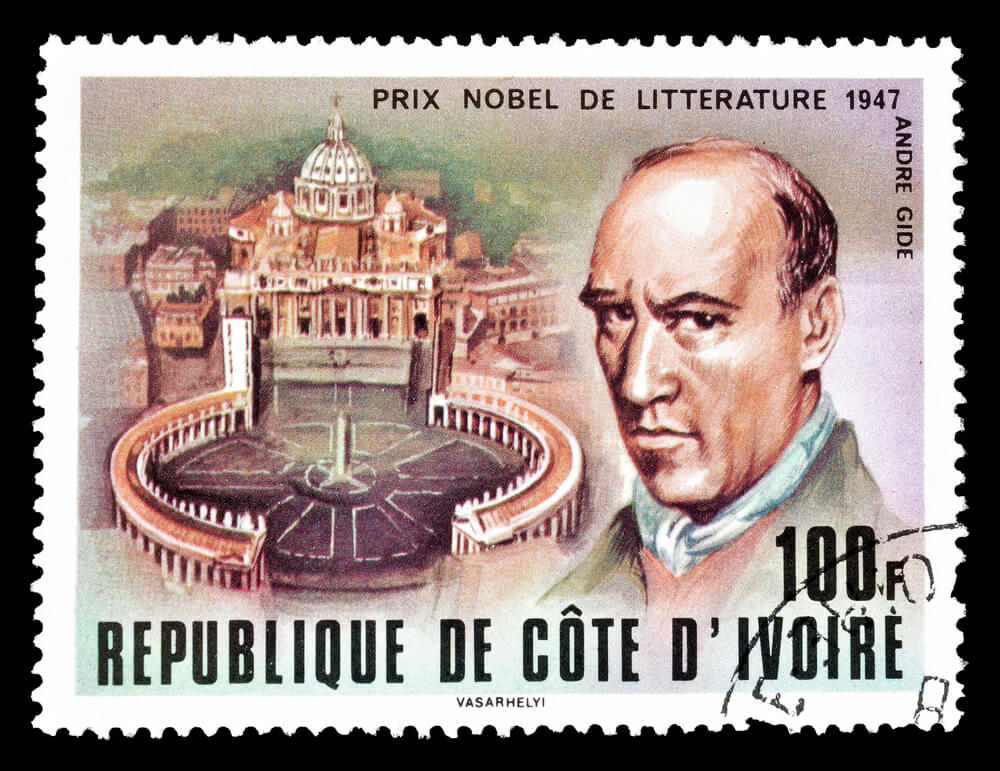In andré Gide’s sentences we can see the deep humanist genius that was this great man, who not only distinguished himself as a writer, but gained great fame for the critical perspective with which he addressed the French presence in Africa.
This French writer lived in the first half of the twentieth century, a convulsive period in which taboos were still numerous, and throughout his life faced great moral dilemmas, mainly related to love, truth and sexuality, as is clearly expressed in several sentences of André Gide.
- “If you really want to be happy.
- Don’t be tempted to compare this moment to other moments from the past that you didn’t know how to take advantage of because you were comparing them to the moments that would follow.
- “-Andre Gide-.
Several of his works have an obvious autobiographical bias, as his own life has presented him with a great crossroads. André Gide’s phrases, however, are almost always cheerful and fresh. There was no resentment in his approaches, despite the rejection of many of his contemporaries. Here are some of his most memorable statements.
This is one of André Gide’s most beautiful phrases and alludes to the magical combination that sometimes occurs between happiness and work. He says: “The secret of my happiness is not to seek pleasure, but to find pleasure in effort. “
You are absolutely right when you point out that pleasure or satisfaction is not achieved with effort as such, without a goal in itself, this pleasure is a consequence, wanting what you love is an act of freedom that produces satisfaction on its own, without needing anything else.
The theme of material goods is one of the most suggestive topics in history. In this regard, André Gide notes: “Full possession is shown only by giving. Everything we can’t give is ours?
It is a beautiful and lucid phrase in which he reiterates that giving is the active manifestation of possession, who gives is because he has. He who gives not, even if he has, has nothing, but belongs to what he reserves for himself, the desire to preserve dominates because he feels that he does not have enough, in this way the goods end up imprisoning his owner.
Many of André Gide’s phrases have a delicate and poetic tone, unpretentious. This, for example, says, “The most beautiful things are dictated by madness and written by reason. “In this case, she declares beauty as a result of marriage. between madness and reason.
From his point of view, madness is the creative force, that absurd passion is the one that leads to something new, which only becomes beautiful if reason shapes it, so in the world of ideas, imagination, must dominate irrationality. to the artistic, if the intellect models it, adhering to the laws of logic.
André Gide was a great traveler, who had great pleasure in discovering new cultures and new ways of life, as you know, frequent travelers are also curious people, who are not afraid of the new and who face adventure with courage and determination. to both material, intellectual or spiritual journeys.
This explorer spirit is reflected in André Gide’s phrase: “We will not discover new lands unless we dare to lose sight of the old banks. “It is also a metaphor for the importance of abandoning the known to expand the worldview and open up to the new.
It’s a very wise phrase, with which many can certainly identify. She notes: “If we don’t notice the presence of happiness more often it’s because it looks different than we expected. “In this statement, he emphasizes the contrast between happiness as a concept and happiness as a concrete reality.
Humans generally make mistakes in judging what makes us happy, often we put happiness in what we don’t have or what we don’t have, instead, maybe we should learn to recognize it in what is at every moment of our existence. Perhaps in this way we could enjoy more of the happiness that we often have and that we do not know how to recognize.
André Gide won the Nobel Prize in Literature in 1947, but his books were long banned by the Church, yet his work and legacy have been the guide for many of his contemporaries, such as Albert Camus and Jean Paul Sartre. . Left a mark that will remain forever in letters and culture.

